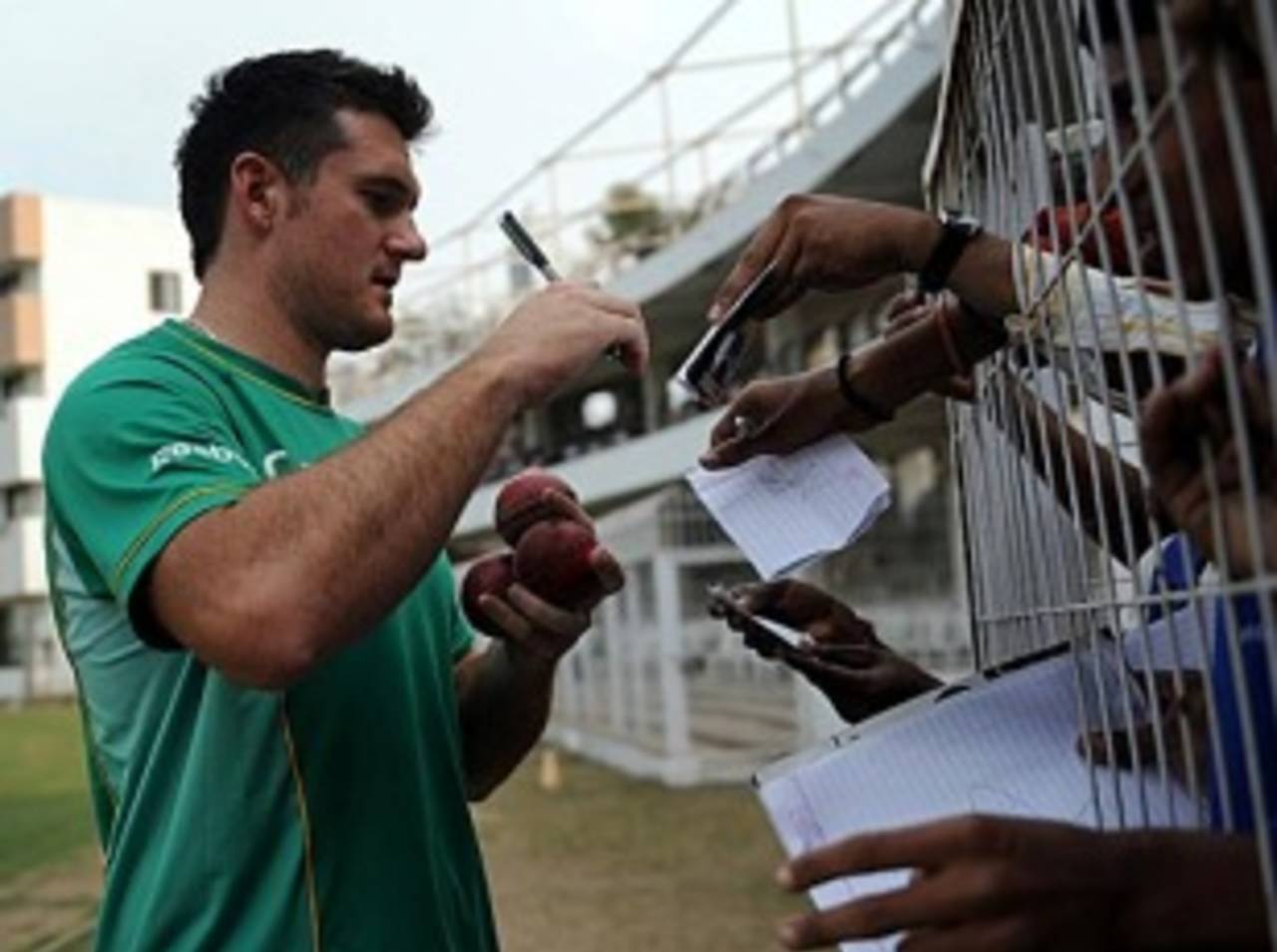Return to Nagpur. Could that be the title of a Bollywood epic about dodgy dealings by desperate men in dens of inequity? It could, because the above shenanigans indeed occurred during South Africa's first - and to date only - engagement with India
in Nagpur.
March 19 has and will always be an auspicious day in the life of Herschelle Gibbs. "It's my mother's birthday," he told the King
Commission after some of the details of Hansie Cronje's greedy crookery had emerged. In 2000, March 19 was also the day that Gibbs agreed to lose his wicket for less than 20 runs in the fifth one-day international. His price? US$15,000.
But he blew his bonus payday by launching 13 fours and a six in a breathtaking innings of 74.
"I forgot," was how Gibbs explained his error to a room filled with learned legal minds and media men and women who couldn't quite believe what they were hearing. Beyond them, the wider world's gob was truly smacked.
"Herschelle, if you don't tell the truth you will go to jail," was how Mark Boucher had famously convinced Gibbs to 'fess up.
You have to wonder whether Boucher is thinking of those dark days now that he is back in Nagpur, where the first Test starts on Saturday. The grizzled wicketkeeper-batsman is the only survivor from the 2000 tour in this Test squad. Gibbs is in the one-day squad, but mercifully for him, that series won't make a stop in Nagpur.
The focus on March 19, 2000 is not misplaced. South Africa's prominent involvement in the match-fixing scandal came like a kick to
the head delivered the morning after a hangover had cleared. Isolation had ended just nine years previously, and Cronje's conniving with the
underworld put another serious stain on South Africa's record. As if being thrown out of world cricket for representing an evil regime wasn't bad enough, South Africa were also guilty of consorting for nothing more important than cash with those who thought little of doing the game potentially fatal harm.
The period between the end of isolation and the match-fixing debacle was a time of steady growth for South African cricket and for
the national team. Cronje was the standard bearer for the new breed of South African players, who could hold their own in the company of the generation who had their careers stunted by isolation, from whose ranks had been drawn the best team the country has yet produced.
South Africa won three of the five Test matches they played under Cronje's leadership in India, two of them on that fateful
2000 tour. Those victories earned South Africa their only rubber in India. The ugly irony is, they celebrated that triumph 13 days before the nonsense at Nagpur. Since then, in India, they have won one Test, drawn two, and lost two.
South Africa's prominent involvement in the match-fixing scandal came like a kick to the head delivered the morning after a hangover had cleared
The teams captained by Shaun Pollock and Graeme Smith have rehabilitated South Africa's image. But there hangs about South Africa the
whiff of what might have been had they not put such high obstacles in the path of their own success. What if they hadn't tried to keep
cricket lily-white for a century? What if Cronje had stayed clean and handed down an honourable legacy to his successors?
On top of that, South Africa remain susceptible to cricket's more common ills. Their current passage to India is a case in point.
It began in the fog of confusion that shrouded
Mickey Arthur's demise as coach. They are without Makhaya Ntini, who understands more than most the importance of relentlessness and patience on slower pitches. The Test squad features one spinner whose action will always be considered suspect (Johan Botha), another whose form doesn't merit selection (Paul Harris) and yet another who is actually a batsman at the nadir of his powers (JP Duminy). Moreover, while Ashwell Prince scored a sublime century in the MTN40 final, India's new-ball attack is entirely likely to remind him of his dismal experiences as a Test opener.
Besides all that, consider that South Africa will take on perhaps the finest Indian team ever, who are being guided by coaches with
first-hand knowledge of the opposition's strengths and weaknesses. The portents, then, do not look good for Smith's men. They have surely
never been more obvious underdogs going into a series.
Which may be the biggest threat to India. The old chestnut about South African teams fighting hardest when their backs are against the wall is a cliché precisely because it is true. They're entirely comfortable with a scenario in which the only way forward is up.
Say what you like about the fact that this is a series between the top two teams in the Test rankings, or that both sides are littered
with class, grit and experience, or that injuries in the Indian ranks close the gap significantly between the teams. The truth is, a supremely confident Indian team will grant an audience to an unusually unsure South African side.
At least, that's the way we're determined to see things down here on the southern tip of Africa.
Telford Vice is a freelance cricket writer in South Africa
